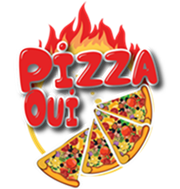


As a way to hold your dream, enterprise, staff and prospects protected, operators have to pay attention to risks within the kitchen, adhere to native fireplace codes and apply fireplace security — as a result of it solely takes a second to lose the whole lot.
Rob Raia, proprietor of Colorado Springs-based Borriello Brothers, is aware of the devastation a hearth could cause. In August, a hearth broke out within the restaurant resulting from what seems to be a failed exhaust fan, inflicting vital harm to the roof.
“The smoke harm was intensive,” Raia mentioned. “The hearth began in between the drop ceiling and the roof itself. The entire roof was broken extensively.” In keeping with Raia, the fireplace began round 6 p.m. when the restaurant was simply beginning to get crowded, and the workers was gearing up for the night.
“The managers took over and received everyone out actual fast,” Raia mentioned. “They did what they have been alleged to do.”
In keeping with Raia, the roof and ceiling must be gutted. Though repairs haven’t began, he’s hoping to reopen in three months.
“We do have a contract with an organization to wash our hoods each six months,” Raia mentioned. “We do what we’re alleged to do.”
Since fi res can occur anytime and anyplace, even when operators are working towards fi re security, how can operators shield their companies higher?
Matt Klaus, senior fi re safety engineer with the Nationwide Fireplace Safety Affiliation (NFPA), says the doc NFPA 96, The Customary for Air flow Management and Fireplace Safety of Business Cooking Operations, is a superb supply on fireplace codes and fireplace prevention.
“This doc offers the necessities for the design and set up of a hearth protected cooking space inside a business cooking setting,” mentioned Klaus. “There are two important kinds of techniques which are present in business cooking areas, an exhaust system and a hearth suppression system. The ducted exhaust system is required for all ‘cooking gear utilized in processes producing smoke or grease laden vapor’ (NFPA 96 Part 4.1.1 2011 Version).”
To analyze native fireplace codes, Scott Dawkins, director of enterprise operations for kitchen exhaust cleansing specialists HOODZ, advises operators to contact their native authority having jurisdiction (AHJ) to make sure the restaurant system is being correctly inspected and maintained.



“Grease in an exhaust system is a possible fireplace hazard. In most municipalities, the AHJ is the fireplace marshal,” Dawkins mentioned. “The AHJ will inform the restaurant proprietor of the native codes they’ve adopted of their space. The NFPA 96 outlines the minimal inspection frequency.”
Dawkins says exhaust cleansing corporations are contracted by restaurant homeowners to repeatedly clear and examine their techniques. The quantity of grease vapors the cooking gear produces determines the upkeep schedule (which may be month-to-month, quarterly, semi-annually or yearly).
“Rent certified corporations to assist hold their funding fireplace protected. All the time examine the corporate’s work that’s performing the exhaust cleansing and ask them for photos of the cleaned system,” Dawkins mentioned.
Upon reopening, Raia plans to implement a logbook of upkeep to file what gear was serviced, when and by whom, and hold warranties accessible.
Dawkins, in the meantime, says operators have to know the way the design of their kitchen and site of the gear can enhance or lower fireplace danger.
“The restaurant proprietor will wish to guarantee they’re following the native codes when designing or altering the structure of the kitchen to make sure the correct exhaust system is in place over the varied cooking home equipment,” Dawkins says. “Guarantee all cooking gear is functioning appropriately and the kitchen workers is correctly educated on the mandatory precautions.”
Klaus says grease fires are exceptionally difficult as a result of they’ll present a suppression problem; a moist sprinkler shall be ineffective and will even trigger the fireplace to unfold. “The final concern of the fi re marshals, constructing officers or responding personnel is that the suitable techniques have been put in place for the hazards current. This may be achieved by offering the gear as outlined in NFPA 96,” Klaus says. “As soon as the system has been correctly designed and put in, sustaining and cleansing the system turns into the continuing battle for the proprietor and fireplace division. The build-up of grease throughout the system may be the supply of the fireplace or contribute to the event of a hearth whether it is permitted to ignite. Correct cleansing and inspection in accordance with Chapter 11 of NFPA 96 is one approach to restrict the publicity of a property to grease fires.”
Operators not solely want to teach themselves on fireplace codes and fireplace security, however they need to additionally educate their workers.
In keeping with OSHA’s Fireplace Security within the Office Reality Sheet, “Employers ought to prepare employees about fireplace hazards within the office and about what to do in a hearth emergency. If you need your employees to evacuate, you need to prepare them on find out how to escape. If you happen to count on your employees to make use of transportable fireplace extinguishers, you need to present hands-on coaching in utilizing this gear.”
Profitable fireplace prevention requires training and laborious work. By following native fireplace codes, matching up the suitable techniques to the current risks, sustaining these techniques to maintain them working effectively and educating your workers on fireplace security procedures, operators can scale back their danger of fireside to their companies and goals. ?
DeAnn Owens is a contract journalist residing in Indianapolis. She focuses on options and human curiosity tales.



As a way to hold your dream, enterprise, staff and prospects protected, operators have to pay attention to risks within the kitchen, adhere to native fireplace codes and apply fireplace security — as a result of it solely takes a second to lose the whole lot.
Rob Raia, proprietor of Colorado Springs-based Borriello Brothers, is aware of the devastation a hearth could cause. In August, a hearth broke out within the restaurant resulting from what seems to be a failed exhaust fan, inflicting vital harm to the roof.
“The smoke harm was intensive,” Raia mentioned. “The hearth began in between the drop ceiling and the roof itself. The entire roof was broken extensively.” In keeping with Raia, the fireplace began round 6 p.m. when the restaurant was simply beginning to get crowded, and the workers was gearing up for the night.
“The managers took over and received everyone out actual fast,” Raia mentioned. “They did what they have been alleged to do.”
In keeping with Raia, the roof and ceiling must be gutted. Though repairs haven’t began, he’s hoping to reopen in three months.
“We do have a contract with an organization to wash our hoods each six months,” Raia mentioned. “We do what we’re alleged to do.”
Since fi res can occur anytime and anyplace, even when operators are working towards fi re security, how can operators shield their companies higher?
Matt Klaus, senior fi re safety engineer with the Nationwide Fireplace Safety Affiliation (NFPA), says the doc NFPA 96, The Customary for Air flow Management and Fireplace Safety of Business Cooking Operations, is a superb supply on fireplace codes and fireplace prevention.
“This doc offers the necessities for the design and set up of a hearth protected cooking space inside a business cooking setting,” mentioned Klaus. “There are two important kinds of techniques which are present in business cooking areas, an exhaust system and a hearth suppression system. The ducted exhaust system is required for all ‘cooking gear utilized in processes producing smoke or grease laden vapor’ (NFPA 96 Part 4.1.1 2011 Version).”
To analyze native fireplace codes, Scott Dawkins, director of enterprise operations for kitchen exhaust cleansing specialists HOODZ, advises operators to contact their native authority having jurisdiction (AHJ) to make sure the restaurant system is being correctly inspected and maintained.



“Grease in an exhaust system is a possible fireplace hazard. In most municipalities, the AHJ is the fireplace marshal,” Dawkins mentioned. “The AHJ will inform the restaurant proprietor of the native codes they’ve adopted of their space. The NFPA 96 outlines the minimal inspection frequency.”
Dawkins says exhaust cleansing corporations are contracted by restaurant homeowners to repeatedly clear and examine their techniques. The quantity of grease vapors the cooking gear produces determines the upkeep schedule (which may be month-to-month, quarterly, semi-annually or yearly).
“Rent certified corporations to assist hold their funding fireplace protected. All the time examine the corporate’s work that’s performing the exhaust cleansing and ask them for photos of the cleaned system,” Dawkins mentioned.
Upon reopening, Raia plans to implement a logbook of upkeep to file what gear was serviced, when and by whom, and hold warranties accessible.
Dawkins, in the meantime, says operators have to know the way the design of their kitchen and site of the gear can enhance or lower fireplace danger.
“The restaurant proprietor will wish to guarantee they’re following the native codes when designing or altering the structure of the kitchen to make sure the correct exhaust system is in place over the varied cooking home equipment,” Dawkins says. “Guarantee all cooking gear is functioning appropriately and the kitchen workers is correctly educated on the mandatory precautions.”
Klaus says grease fires are exceptionally difficult as a result of they’ll present a suppression problem; a moist sprinkler shall be ineffective and will even trigger the fireplace to unfold. “The final concern of the fi re marshals, constructing officers or responding personnel is that the suitable techniques have been put in place for the hazards current. This may be achieved by offering the gear as outlined in NFPA 96,” Klaus says. “As soon as the system has been correctly designed and put in, sustaining and cleansing the system turns into the continuing battle for the proprietor and fireplace division. The build-up of grease throughout the system may be the supply of the fireplace or contribute to the event of a hearth whether it is permitted to ignite. Correct cleansing and inspection in accordance with Chapter 11 of NFPA 96 is one approach to restrict the publicity of a property to grease fires.”
Operators not solely want to teach themselves on fireplace codes and fireplace security, however they need to additionally educate their workers.
In keeping with OSHA’s Fireplace Security within the Office Reality Sheet, “Employers ought to prepare employees about fireplace hazards within the office and about what to do in a hearth emergency. If you need your employees to evacuate, you need to prepare them on find out how to escape. If you happen to count on your employees to make use of transportable fireplace extinguishers, you need to present hands-on coaching in utilizing this gear.”
Profitable fireplace prevention requires training and laborious work. By following native fireplace codes, matching up the suitable techniques to the current risks, sustaining these techniques to maintain them working effectively and educating your workers on fireplace security procedures, operators can scale back their danger of fireside to their companies and goals. ?
DeAnn Owens is a contract journalist residing in Indianapolis. She focuses on options and human curiosity tales.



